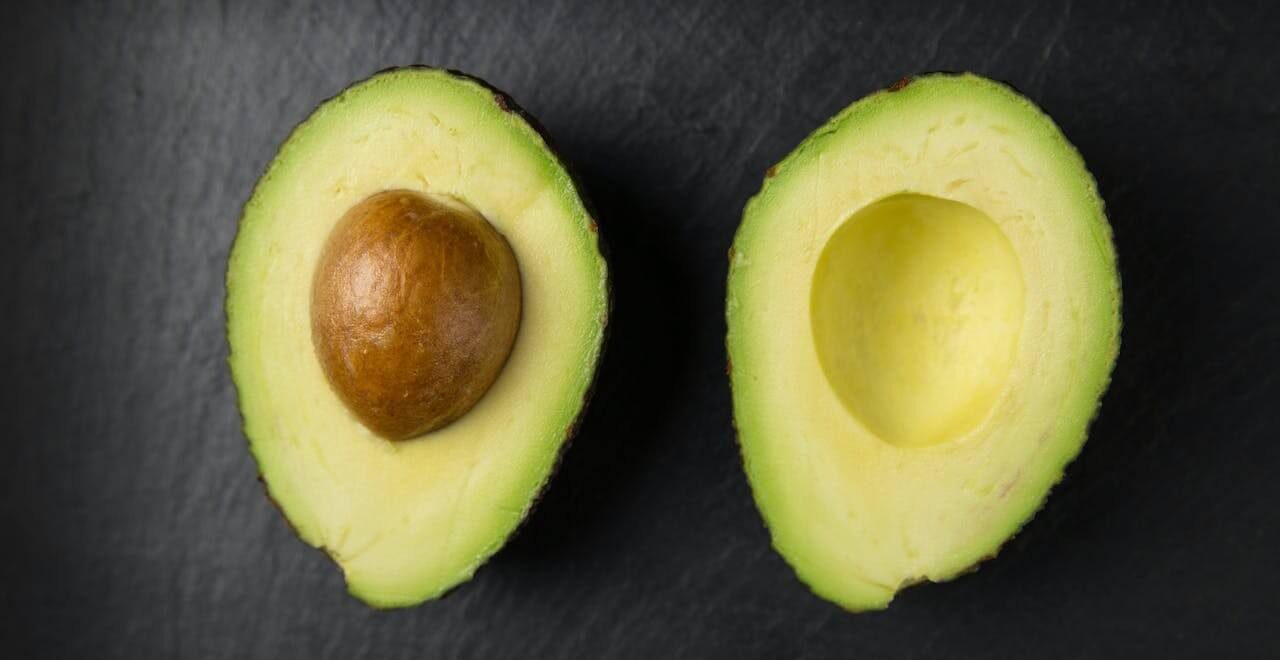Keeping a lid on stress is crucial to heal from adrenal fatigue. But what you eat matters too. Some foods boost adrenal health, while others do just the opposite.
Enter the adrenal fatigue diet – a food-based approach to nourish your adrenal glands, to help speed up your recovery.
Read on to learn what foods help adrenal fatigue, what foods to avoid, and how to time your meals to support adrenal health.
Adrenal Fatigue Diet 101
One of the main goals of the adrenal fatigue diet is to keep your blood sugar steady. This is because your adrenal glands produce the stress hormone cortisol – which plays a role in regulating your blood glucose.
If your adrenals are overworked and your cortisol goes haywire, so can your blood sugar. This only puts extra stress on your adrenals.
That’s why maintaining blood sugar balance is key to improving adrenal health. Don’t worry, this article will cover exactly how to do this!
The Best Foods for Adrenal Health
Here are seven top foods to eat regularly to restore your adrenal health:
High-quality protein

Including protein with every meal and snack is a must for adrenal fatigue. Protein helps stabilize your blood sugar to keep your energy levels steady.
But quality matters. Pass on processed meats and vegan mock meats in favor of high-quality protein sources like:
- Organic chicken, turkey, and pork
- Wild fish
- Grass-fed beef
- Pasture-raised, organic eggs
- Organ meats
- Legumes such as lentils and beans
- Nuts and seeds
- Organic soy foods like tofu and tempeh
Healthy fats

Like protein, healthy fats are essential for healing adrenal fatigue. Fat promotes satiety, stabilizes energy, and helps your body make hormones (like cortisol).
Try to include some healthy fat in every meal and snack. Here are some good options:
- Coconut oil is rich in triglycerides that support brain function.
- Avocados are high in fiber and heart-healthy monounsaturated fats.
- Olive oil has potent anti-inflammatory and antioxidant properties.
- Nuts and seeds deliver protein and healthy fats to keep your blood sugar balanced.
- Oily fish like salmon, sardines, and mackerel are rich in omega-3 fatty acids, which reduce inflammation and promote brain health.
Vegetables
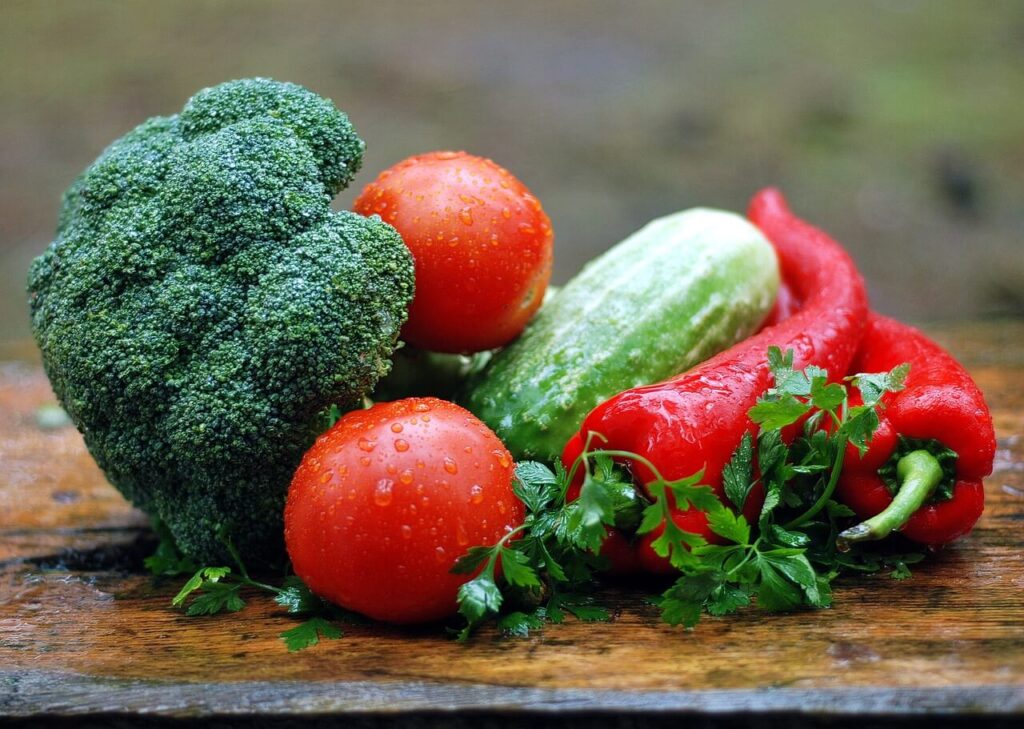
No surprise here, but eating a variety of colorful vegetables is a crucial piece of the adrenal fatigue diet. Vegetables are extremely nourishing to the adrenal glands thanks to their high vitamin and mineral content.
Aim to eat 6-8 servings of veggies every day, especially non-starchy vegetables like:
- Leafy greens. Chronic stress depletes magnesium, a mineral that promotes relaxation and helps you sleep. Luckily, spinach, kale, collard greens, and Swiss chard are packed with magnesium. Eating more of these greens can help replenish your magnesium stores.
- Cruciferous veggies. Broccoli, cauliflower, and Brussels sprouts contain glucosinolates, compounds that promote detoxification. Toxins put extra stress on your adrenals. So supporting your detox pathways may boost your adrenal function.
- Allium vegetables: Onions, garlic, and shallots contain sulfur compounds that promote liver detox.
Starchy vegetables like sweet potato, butternut squash, and peas are also fine since they’re rich in fiber and phytonutrients. But they’re best consumed with protein or fat. When eaten alone, they can cause a blood sugar spike.
Gluten-free whole grains
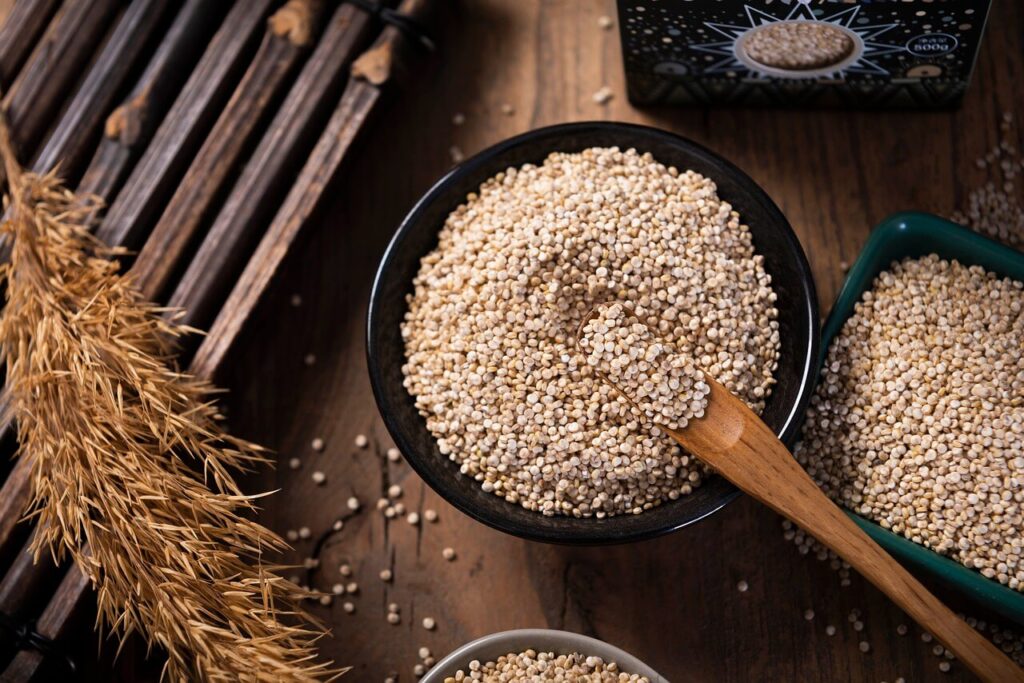
Whole grains are not only rich in vitamins and minerals, but they’re also packed with fiber. Fiber slows down digestion so that glucose is released more slowly. This prevents those nasty blood sugar spikes that can happen with refined grains.
That said, when healing adrenal fatigue, it’s best to stick to gluten-free grains (at least at first). Many people are sensitive to gluten and don’t even know it. If you’re one of them, eating gluten can trigger an inflammatory response – which can make it difficult to heal.
To test it out, try avoiding gluten for 2-3 months to see if your symptoms improve. Instead, enjoy gluten-free whole grains like:
- Brown rice
- Wild rice
- Buckwheat
- Quinoa
- Millet
- Amaranth
- Oats
Low-sugar fruits
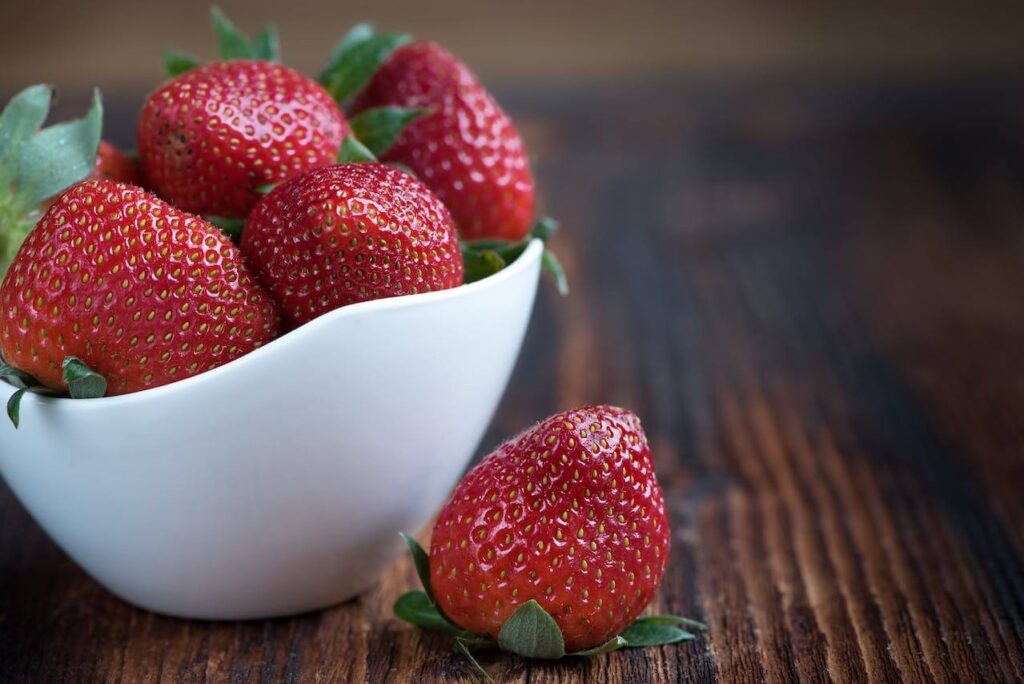
Fruit is loaded with vitamins, minerals, antioxidants, and fiber. Many fruits are also high in vitamin C, which helps your body make stress hormones like cortisol.
But fruit does have natural sugars, so don’t overdo it. When healing your adrenals, it’s best to stick to low-glycemic fruits like:
- Berries
- Apples
- Pears
- Mango
- Kiwi
- Cherries
Steer clear of high-potassium fruits, as they can aggravate adrenal imbalances. High-potassium fruits include:
- Bananas
- Oranges
- Grapefruit
- Dates
- Figs
- Raisins
As your adrenals heal, you’ll be able to add in more fruit – so hang in there.
Sea salt

Salt cravings are one of the hallmark signs of adrenal fatigue. That’s because adrenal fatigue can cause electrolyte imbalances, especially between potassium and sodium (aka salt).
So when healing your adrenals, listen to your body, and don’t be stingy with the salt. Just steer clear of table salt and stick with mineral-rich sea salt. Seaweed and kelp can also be excellent foods to boost your sodium intake.
Fermented foods
Your gut microbiome influences how well you respond to stress. So supporting your gut health can benefit your adrenal health too.
One easy way to do that is to eat fermented foods. Fermented foods contain live probiotics that support digestion and help keep your gut bacteria in balance. Aim for 1-2 servings of fermented foods each day like sauerkraut, yogurt, kefir, kombucha, kimchi, miso, and tempeh.
The Worst Foods for Adrenal Health
Now that you know the best foods for healing your adrenals, let’s cover which foods to avoid.
Sugar
Soda, candy, and other sugary sweets spike your blood glucose, supplying a quick burst of energy. But the inevitable sugar crash soon follows, leaving you more tired than before. Sugar is also inflammatory and feeds harmful bacteria in your gut.
Alcohol
Alcohol is a major no-no for healing your adrenals. Like sugar, alcohol takes your blood glucose on a roller coaster ride. It also harms your body’s ability to produce cortisol and disrupts communication between your nervous, endocrine, and immune system.
Caffeine

Coffee may give you a quick shot of energy, but it’s bad news for your adrenals. Research shows caffeine increases cortisol levels and disrupts your sleep. So it’s best to avoid it when healing your adrenals.
If you miss your morning coffee ritual, there are many herbal teas that make great replacements. Dandelion tea, chicory, and holy basil tea are all excellent options. And if you need a bit of caffeine to get going, try some green tea instead.
Inflammatory oils
Vegetable oils like corn oil and soybean oil are high in omega-6 fatty acids. While you need some omega-6 fats, consuming too much can lead to chronic inflammation. Many vegetable and seed oils are also highly processed, which only worsens inflammation.
Inflammatory oils to avoid include:
- Canola oil
- Sunflower oil
- Grapeseed oil
- Cottonseed oil
- Peanut oil
- Soybean oil
Processed foods
Most processed foods are loaded with artificial preservatives, colors, and fillers, making them difficult to digest. Not to mention, they’re low on nutrition. To heal your adrenals, skip the processed foods and focus on whole foods instead.
Refined grains
White rice and foods made with white flour are stripped of nutrients and fiber. Because of this, they convert into sugar quickly and cause the same blood glucose issues as sugar.
Why Timing Your Meals Is Important
To recover from adrenal fatigue, it’s not just what you eat that matters – it’s when. Skipping meals can trigger dramatic blood sugar and cortisol spikes.
For this reason, it’s best to eat at regular intervals (about every three hours). Timing your meals and snacks with cortisol’s natural rhythm can help keep your energy levels steady.
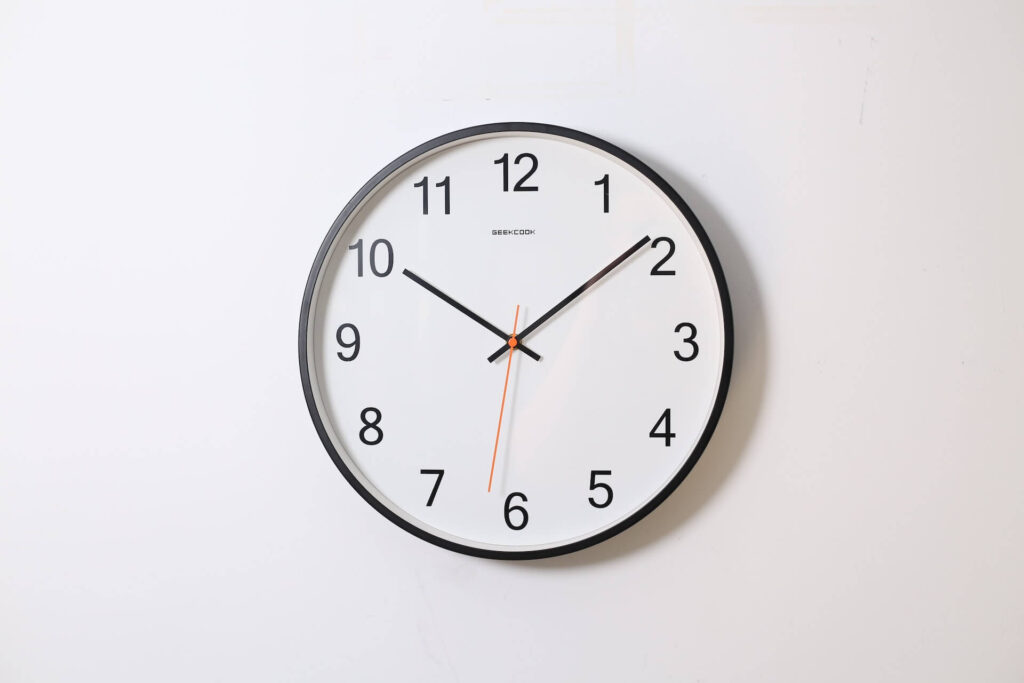
Here’s an example of an ideal meal schedule for adrenal fatigue:
- Breakfast – Eat soon after rising to replenish your energy, ideally between 6:00 and 8:00 a.m.
- Mid-morning snack – Around 2-3 hours after breakfast have a mid-morning snack.
- Lunch: Enjoy an early lunch at around 12:00 p.m.
- Mid-afternoon snack – For many folks with adrenal fatigue, cortisol drops between 3:00 and 4:00 p.m. To avoid this mid-afternoon slump, enjoy a snack between 2:00 to 3:00 p.m.
- Dinner – Eat your evening meal between 5:00 to 6:00 p.m. if possible.
If you can’t follow this schedule to the T – no worries! Do the best you can. Just be sure to eat every few hours.
Try to include a good balance of protein, healthy fats, and carbs with every meal and snack to keep your blood sugar steady. Here are some ideas to paint a picture:
- Breakfast: scrambled eggs (protein), sauteed spinach and onions (carb), & sliced avocado (fat)
- Mid-morning snack: Apple (carb) with a handful of walnuts (protein + fat)
- Lunch: Grilled chicken (protein), sweet potato (carb), & green salad with olive oil vinaigrette (carb + fat)
- Mid-afternoon snack: Celery sticks (carb) with almond butter (protein + fat)
- Dinner: Salmon (protein), quinoa (carb), kale sauteed with olive oil (carb + fat)
Slow Down & Eat Mindfully
To heal adrenal fatigue, how you eat matters too. For optimal digestion, you want to be in a parasympathetic state, also known as “rest and digest” mode.
That’s hard to do if you’re working at your desk, scrolling social media, or eating on the go. So at mealtimes resist the urge to multi-task, slow down, and eat mindfully.
Here are a few tips that may help:
- Take some deep breaths. Starting each meal with three slow, deep breaths helps your body relax to set the stage for digestion.
- Eat distraction-free. That means no phone, TV, or emails while you eat. Instead, put all your attention on your food.
- Sit down & slow down. Instead of racing through meals, sit down and allow at least 15-20 minutes to eat.
- Chew your food. The more you chew your food, the better your digestion will be. Aim to chew each bite at least 30 times, or until your food is the consistency of applesauce.
- Practice gratitude. While you eat, use this time to practice gratitude. This will make your meals more enjoyable – and even therapeutic!
Get to the Root of Your Adrenal Fatigue with Functional Medicine in Orland Park, IL
Reducing stress and cleaning up your diet are both key to restoring adrenal function. But if you try the adrenal fatigue diet and are still feeling exhausted, there could be an underlying condition at play.
Food sensitivities, chronic infections, and hormonal imbalances can all disrupt your adrenal health. Treating these conditions can ease the stress on your adrenals, so you can finally recover.
At Anchored in Health, our functional medicine doctor uses targeted lab testing to uncover any imbalances that may interfere with your adrenal function.
Based on those results, you get a customized treatment plan with dietary, lifestyle, and supplement recommendations.
So if you’re tired of dragging yourself through your day – and are ready to get your mojo back, follow these steps:
- Contact us at our Orland Park, IL office with questions or to learn more.
- Book your first appointment with our functional medicine doctor here.
- Experience how functional medicine can help you regain your energy and zest for life!
Other Holistic Health Services Offered at Anchored in Health in Orland Park, IL
Functional medicine isn’t all we do at Anchored in Health. We offer a variety of wellness services to support your health and well-being.
This includes chiropractic care, massage therapy, acupuncture, and the Shape ReClaimed program. We also offer holistic assessment tools like thermography and genetic testing.
If you live near the Chicago area and are ready to get to stop surviving and start thriving – we’re here to help! Contact us to learn how we can support you on your health journey.
Disclaimer: The information provided on this blog is for educational and informational purposes only and is not intended to diagnose, treat, cure, or prevent any disease. The content is not a substitute for professional medical advice, diagnosis, or treatment. Always seek the guidance of a qualified healthcare provider with any questions you may have regarding your health or a medical condition.
Reading this blog does not establish a doctor-patient relationship between you and Anchored In Health or any of its practitioners. Reliance on any information provided in this blog is solely at your own risk. For medical concerns, always consult a licensed healthcare provider.
References:
- Wilson, J. 2001. Adrenal Fatigue: The 21st Century Syndrome. Petaluma, CA: Smart Publications.
- https://www.ncbi.nlm.nih.gov/pmc/articles/PMC7761127/
- https://www.nature.com/articles/s41380-022-01817-y
- https://www.ncbi.nlm.nih.gov/pmc/articles/PMC2266962/
- https://www.ncbi.nlm.nih.gov/pmc/articles/PMC3767933/
- https://www.ncbi.nlm.nih.gov/pmc/articles/PMC2257922/
